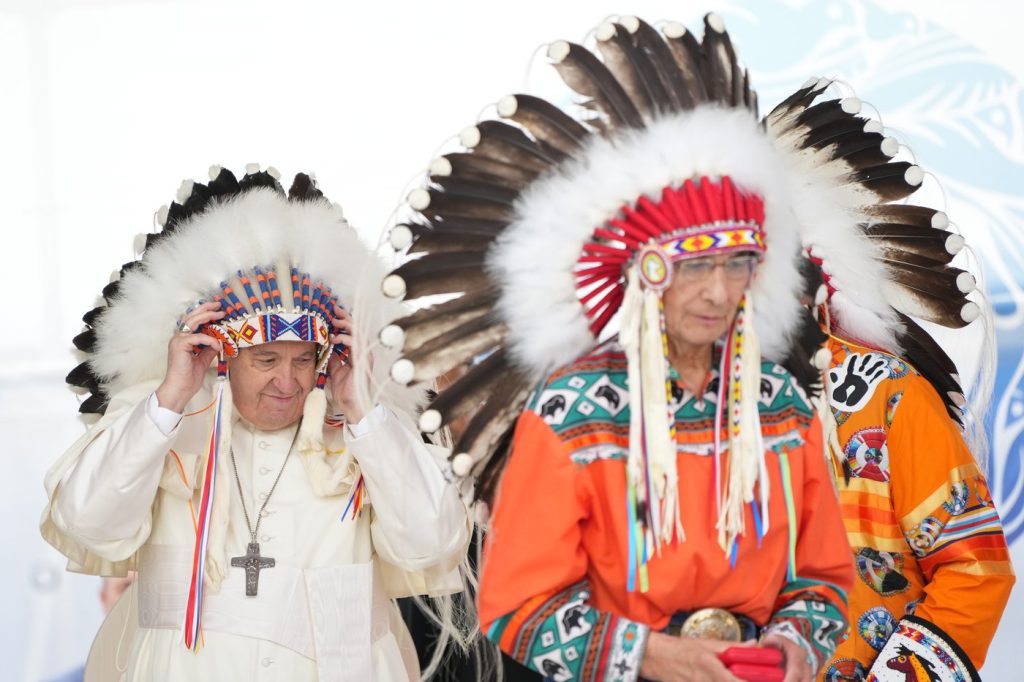Indigenous groups in Canada are expressing hope that the newly elected Pope Leo XIV will continue the reconciliation efforts initiated by the late Pope Francis. Following in the footsteps of his predecessor, Francis was recognized for his supportive relationship with Canada's Indigenous Peoples. He was instrumental in advancing reconciliation initiatives and offering apologies for the Catholic Church's role in the widespread abuses that occurred in residential schools.
Pope Francis's visit to Canada in 2022 was significant, described as a "penitential pilgrimage." During this visit, he prioritized meeting with Indigenous survivors of residential schools and actively listening to their stories. Notably, he also indicated a willingness to return colonial-era artifacts taken from Indigenous communities in Canada, thereby acknowledging the need for restitution.
National Chief Cindy Woodhouse Nepinak, who was present in Rome for Pope Francis's funeral, remarked that the late pontiff "did a lot of good things" for Indigenous relations. With the election of Pope Leo XIV, who was born in Chicago and spent many years working in Peru, there is a palpable sense of optimism. Woodhouse Nepinak expressed her desire for Pope Leo to be "open and receptive" in collaboration with Indigenous communities, recognizing the unfinished work left by his predecessor. She emphasized the importance of continuing dialogue about the repatriation of sacred artifacts and hopes to engage in discussions with the new pope and the Vatican on these matters.
The Inuit Tapiriit Kanatami, representing over 65,000 Inuit in Canada, also welcomed the selection of Pope Leo, expressing eagerness to advance their productive relationship with the Catholic Church in reconciliation efforts. They expressed hopes that the church would uphold and strengthen initiatives for repatriating cultural heritage and supporting Indigenous community priorities.
The Truth and Reconciliation Commission of Canada, through its final report released in 2015, outlined several calls to action directed toward the Pope, including a request for him to come to Canada and apologize. Other suggested actions involved improving educational strategies about the church's role in colonization, fostering respect for Indigenous spirituality, and providing permanent funding for culture and language revitalization projects.
Chief Woodhouse Nepinak highlighted the need for an evaluation of Canada's progress with the church regarding the Commission's calls to action, noting that nearly a decade has passed since they were issued. She asserted that the current efforts are insufficient, prompting a need to measure advancements in these initiatives. Additionally, she expressed hope that Pope Leo would visit Canada and meet with residential school survivors to gain a better understanding of their experiences.
With around 150,000 Indigenous children having been forced to attend residential schools in Canada—over 60% of which were operated by the Catholic Church—the path toward reconciliation is of utmost importance. Neil MacCarthy, a spokesperson for the Catholic archdiocese of Toronto, expressed optimism that reconciliation work would persist under Pope Leo, noting the significant strides made during Pope Francis's papacy.
MacCarthy, who was involved in both the 2022 delegation to Rome and the papal visit to Canada, acknowledged the progress made in the relationship between the Catholic Church and Indigenous Peoples, deeming it a "whole new chapter" in their collective journey. He reassured that advancing these reconciliation issues will require time and collaboration with Canadian bishops and stakeholders involved in this ongoing journey.











